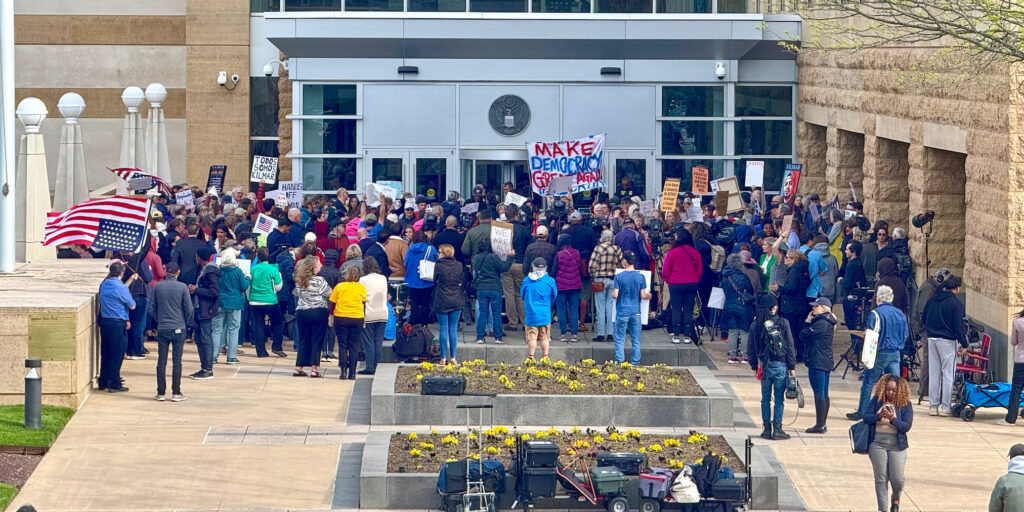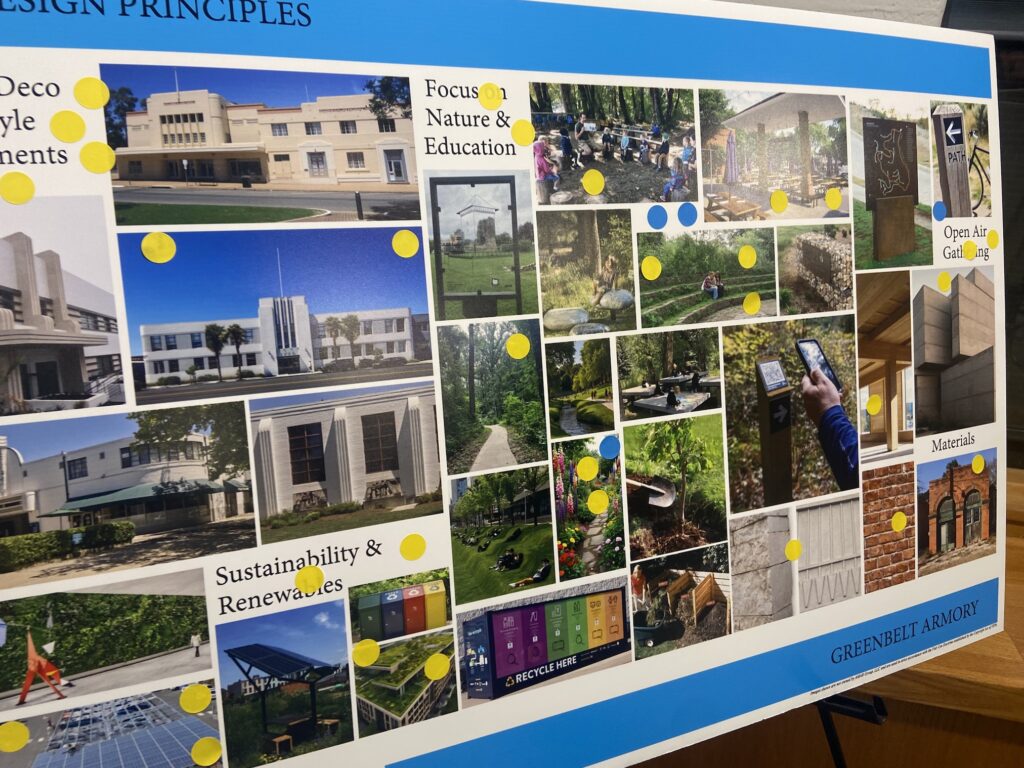On February 21, the Greenbelt City Council held a worksession with Franklin Park management. Part of that meeting is described in a separate article on public safety (see the February 29 issue). In the meeting, Laurie Bonner, operations manager for Fieldstone Properties (owner of Franklin Park), and Franklin Park Manager Denise Knight fielded questions from council and attendees on multiple topics. To set the scene, Bonner described the massive complex of 153 acres, 246 buildings and 2,877 rental units, stating multiple times during the meeting that Fieldstone’s goal is to house people in quality, affordable properties. Franklin Park is divided into nine phases, each with its own boiler plant. In an interesting historical note, each of these phases was individually owned when the original Springhill Lake was built in the early 1960s.
Improvement Projects
Bonner commented that the replacement windows project is ahead of schedule and Fieldstone will shortly have completed three of the nine phases. Each window and sliding door must be individually measured and built. The remaining six phases, however, are on hold and will need to be paced with cash flow. Even so, they expect to complete them within the original three-year target. Following the windows, interior hallways are to be updated.
Fieldstone has been following a program to install new roofs and high efficiency boilers. With one boiler section already replaced, that plus the window replacement has shown considerable savings in energy. In addition, 14 buildings have replaced water heaters and the grounds have recently received $100K in improvements to landscaping.
Pool Conversion
Since Covid, the second of the two pools in the complex has remained closed and Bonner and Knight confirmed that the remaining pool has not reached capacity usage during the last few summers. The plan for the coming year is to fill in the closed pool and develop the area for a variety of purposes: sports facilities, a second dog park, a grilling area and an updated play area, with the hope of an 18-month turnaround with work potentially starting this April. Bonner explained that running the pool is very expensive, especially since it only gets used three months of the year, and that Fieldstone believes a more extensively used area that costs less money is a sound strategy.
They have recently done resident surveys to identify the most-wanted improvements. Residents continued to express concern over lack of ballfields and the poor state of the Springhill Lake Recreation Center.
Finances, Rent Stabilization Cap
At several points in the discussion, costs and cashflow came into focus. Prince George’s County capped rent increases in new rentals to three percent, in temporary legislation being considered for permanent legislation. Bonner spoke of the pressures this creates when some of their costs, particularly insurance, have gone up by as much as 20 to 30 percent. She explained they can’t afford to upgrade a vacated apartment when the new rent is so little above the earlier one and that this inevitably gradually impacts the quality of what they offer.
Delinquencies, some stemming from Covid, remain a problem with approximately 20 percent of tenants in arrears, of whom perhaps 80 to 90 percent are behind by 90 days or more. Bonner and Knight described how they work with tenants to enable them to retain their leases. Strategies focused on helping residents pay their way going forward and helping them reduce prior indebtedness by, for example, removing a late fee incurred earlier each time they complete a current month’s payment on time. So far, there has been one eviction this year.
Future Development
Mayor Emmett Jordan asked what impact the planned FBI building would have. Bonner repeated that they aimed to provide good quality and affordable housing and she thought this would resonate with FBI employees. She stated that it was, “balance between shiny and new and providing what people can afford.” She reiterated that they would continue to upgrade units (noting that approximately 1,000 or one-third of the apartments now had washers and dryers).
With the anticipated Beltway Plaza redevelopment, Bonner stated that all issues are resolved with the shopping center and they were just waiting for a start date for the redevelopment.
Code Violations
City Director of Planning and Community Development Terri Hruby commented on city inspections and code issues. She said that the annual inspection is in the spring, and as Franklin Park’s rental license expires in May, city inspections are starting early and are increasing to 50 percent of apartments checked (up from 20 percent in previous years). The city is back to, and prefers to do, in-person inspections.
When asked about the penalties for infractions, Hruby stated that the owners have 10 days to remedy and to schedule reinspection and that additional time may be granted depending on what has to be done. She did note that if the matter went to court, backups there make it a multiple-month process to get a resolution. Fines are $200 up to $1,000.
In terms of Franklin Park, the city has received 74 complaints since July 1, 2023. A major area has been the scourge of rodents which, Hruby said, have been especially prevalent throughout the region this year and not only for Franklin Park. Knight was positive about working on their process to prevent infestation, describing how, in the case of persistent problems, tracking down the source often led to the people who didn’t complain about infestations, with whom Franklin Park would work on issues like hoarding or hygiene.
Maintenance Issues
Residents attending the meeting brought up some extensive concerns, particularly about routine and emergency maintenance tickets that didn’t get attended to, in some cases for months. Concerns included a persistent roof leak, exterior lights being out for months and graffiti in playgrounds. A resident described the ticket system as “broken.”
Franklin Park management appeared concerned to resolve these issues – especially with the contractor that fields nighttime and weekend emergency calls ‒ and requested contact information from those at the meeting or contributing electronically to expedite the process.
Trash collection was also a concern, with dumpsters sometimes overflowing. Knight described how their maintenance crews trailed the trash trucks to clean up after the dumpsters were emptied. A discussion ensued about recycling (which is not currently provided) and Knight and Bonner were referred to the city’s recycling coordinator, Luisa Robles.
Looking Ahead
Jordan noted that applications are again being accepted for the county’s Emergency Rental Assistance Program, funds designated to help those still impacted by Covid, and offered city help in applying. Fifteen-year resident Kevin Lockhart suggested a tenants’ association could provide a useful source of input to Franklin Park management. Knight was quick to promote the idea of a team approach to garnering resident input rather than an association. Jordan wondered whether there were plans for electric vehicle charging stations, to which Bonner replied that Fieldstone was evaluating how to roll out a consistent program across all its Maryland and New Jersey properties.



